Adaption Rights
We represent a considerable roster of screenwriters and novelists whose works are available for stage adaptation (opera, musical and theatre). Please see below for our featured titles this month.
For further information and a full catalogue of available titles please contactSissi Liechtenstein
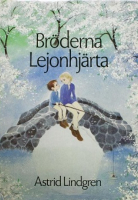
Nangijala is the land of campfires and fairytales, and that's where you go when you die. This is what Jonatan Lion tells his brother Scotty who is lying there seriously ill. How terrible it is that some have to die before they’ve even turned ten – how can this be? Scotty wonders. I think it’s going to be wonderful for you, Jonathan reassures him. In Nangijala your life will be an adventure from morning till night – and even all through the night. Because Nangijala is the place where fairytales happen.
'My brother, Jonathan, knew that I was going to die.
'How can things be so terrible,' I asked. 'That some people have to die, when they're not even ten years old?'
'I don't think it's that terrible,' said Jonathan. 'I think you'll have a marvellous time.'
It was a gravestone on Vimmerby churchyard that gave Astrid the idea for the eternally topical story of the Brothers Lionheart, her second most translated book. The stone said: “Here rest the frail brothers Fahlén, died 1860”. She then knew that it was to become a story about death and two brothers.
STAGE ADAPTATION RIGHTS AVAILABLE
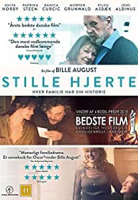
We represent a considerable roster of screenwriters and novelists whose works are available for stage adaptation (opera, musical and theatre). Please see below for our featured titles this month.
For further information and a full catalogue of available titles please contact Sissi Liechtenstein
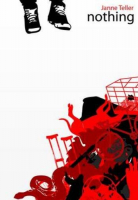
Nothing matters. From the moment you are born, you start to die. The Earth is 4.6 billion years old. You will live to be a maximum of one hundred. Life isn not worth the bother! So says Pierre Anthon when he decides that there is no meaning to life, leaves the classroom, climbs a plum tree, and stays there. His friends and classmates cannot get him to come down, not even by pelting him with rocks. So to prove to him that there is a meaning to life, they set out to build a heap of meaning in an abandoned sawmill. But it soon becomes obvious that each person cannot give up what is most meaningful, so they begin to decide for one another what the others must give up. As the demands become more extreme, events begin to take a morbid turn.
An irresistible novel about everything... A Lord of the Flies for the twenty-first century, Nothing is controversial, shocking and thought-provoking. It is also accessible and beautifully told. Its simplicity belies its depth.
'I love this bold, beautiful, terrifying book. One of the greatest young adult books I have ever read.' --David Almond, author of Skellig.
'This uncompromising novel has all the marks of a classic.' --Booklist
'Rivals Lord Of The Flies for horror' --Kirkus Reviews
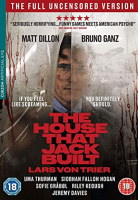
LARS VON TRIER's The House That Jack Built
USA in the 1970s. We follow the highly intelligent Jack over a span of 12 years and are introduced to the murders that define Jack's development as a serial killer. We experience the story from Jack's point of view, while he postulates that each murder is an artwork in itself. As the inevitable police intervention is drawing nearer, he is taking greater and greater risks in his attempt to create the ultimate artwork. Along the way we experience Jack's descriptions of his personal condition, problems and thoughts through a recurring conversation with the unknown Verge--a grotesque mixture of sophistry mixed with an almost childlike self-pity and psychopathic explanations. The House That Jack Built is a dark and sinister story, yet presented through a philosophical and occasional humorous tale.
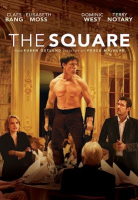
RUben Östlund's Palm d'Or winner and Oscar nominated availabel for stage adaptation.
Christian is the respected curator of a contemporary art museum, a divorced but devoted father of two who drives an electric car and supports good causes. His next show is 'The Square', an installation which invites passersby to altruism, reminding them of their role as responsible fellow human beings. But sometimes, it is difficult to live up to your own ideals: Christian's foolish response to the theft of his phone drags him into shameful situations. Meanwhile, the museum's PR agency has created an unexpected campaign for 'The Square'. The response is overblown and sends Christian, as well as the museum, into an existential crisis.